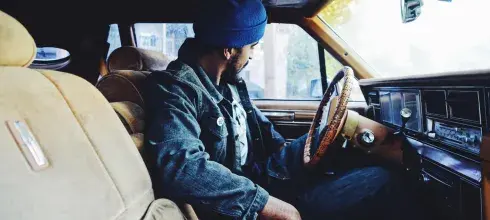
Should I buy a new car now during COVID-19 or wait?
The coronavirus has made life very complicated for millions of people. However, it also happens to be a great time for researching and even buying a new car. Planning for your next car is one thing you can do from the safety of your own home. In this article we’ll look at the effect COVID-19 is having on the car industry and automobile sales and why we believe buying a car might be a good thing to do, if you’ve got enough savings to invest. We’ll also look at some of the precautions you need to take if you want to keep yourself and your loved ones safe.
How COVID-19 is affecting the car industry
To limit the spread of coronavirus, almost all car factories have been shut down. For people wanting to buy a new car this might mean there will be longer waiting times on factory order cars.
Something else that has to be taken into consideration is supply chain disruptions. More than 80% of the world’s auto supply chain is connected to China. Production shortfalls of complete cars and car parts is going to impact global automakers for many months to come.
Many US car companies, however, have huge stocks of cars, specced to the most popular combinations. It’s easy for them to access the national database and locate a car with your preferred specifications. Transport can be arranged, but the service offered is not as flexible as booking your own auto transport service.
How COVID-19 is affecting car sales
Consumers are understandably wary about buying a new car during COVID-19. However, now is possibly the best time to buy a new or used car. The temptation is to wait until the pandemic is over, but then there’s the risk of cars for sale being in very short supply.
The following manufacturers have reported significant drops in sales during the first quarter of 2020.
Fiat Chrysler: sales fell by 10%
General Motors: reported a 7% drop in sales
Toyota: first-quarter sales fell by 9%
There are several factors working against car dealerships during the coronavirus. With three-quarters of Americans being told to stay at home except for essentials, potential buyers are following the advice, not realizing that shopping for a car can be done online. People are also losing their jobs, which takes them out of the credit market. Many people’s savings have also been affected by the recent stock market turmoil, which means they haven’t got the spare cash to spend on a new car. Most car dealerships remain open, but in some states, they have been ordered to close.
Is now the best time to be investing in a car?
COVID-19 has had a huge impact on the markets. Global equity markets have taken huge hits. Experts are saying that it’s just a blip, and that the markets are sure to rally. Buying a car as an investment, however, could be considered a wise thing to do as COVID-19 has had an impact on the auto sales market in a positive way for the consumer.
We’re still in the midst of the coronavirus pandemic and car sales have already dropped by around 35% compared to the same time last year. Car showrooms aren’t technically open at the moment, but it’s still possible to buy a car. Investing in a car now, if you’ve got the savings to do so, could be the right thing to do and when the auto industry recovers the resale value of your car will increase.
The pros of investing in a car
- Low interest rates: in March, the Federal Reserve dropped interest rates to zero as part of its wide ranging emergency intervention. This is the most dramatic move the US central bank has made since the 2008 financial crisis. This interest rate is the benchmark on which other lenders base their rates.
- Warranties: a new vehicle comes with a manufacturer's warranty.
- Latest technology: buy the latest models and you’ll get navigation systems, internet access, satellite radio, lane departure warnings, collision avoidance systems, and self parking.
The cons of investing in a car
- Depreciation: new cars lose on average 11% of their value as soon as they’re driven off the lot
- Insurance: full insurance is generally a requirement, at least until your car is paid for in full.
Buying a new vs. buying a used car: pros and cons
There are lots of benefits to buying a new car compared with a used car., whereas buying used can save you thousands upfront. Let’s take a quick look at the pros and cons of each.
The pros of buying a used car
The biggest advantage of buying a used car is there’s less depreciation. There are also lower car insurance rates to consider, cheaper registry renewals, and the option to shop in a higher class of car. However, the biggest downside is that there’s a much higher risk you’re buying a lemon, which is only going to negate any savings you’ve made in the first place.
Pros
- Less depreciation
- Lower car insurance rates
- Cheaper registry renewals
- Possibility of buying a higher class of car
Cons
- Greater risk of buying a car that is unreliable and needs repairs
The pros of buying a new car
A huge advantage to buying a new car during the current coronavirus crisis is that shopping is much easier. The condition of a new car is assumed to be perfect so there’s no need to stress about getting a mechanic to look at it. It’s also much easier to estimate how much a new car will cost. Negotiating a price is also much easier at the moment.
When you buy a new car there are far more financing options available. Automakers have some pretty exciting incentives at present. New car loans also have better interest rates. Another advantage of a new car is that it will be packed with new features. Improvements are made to comfort, performance, and safety every year. A new car is more likely to be reliable than a used one. There’s virtually no chance of ending up with a lemon if you buy new. One final benefit is that there are certain bragging rights attached to a new car.
Pros
- Shopping for a new car is easier
- Perfect condition
- Easy to estimate cost
- Price negotiations are easier
- More financing options available
- Car has the latest features
- Reliability
- Warranty
- Bragging rights
Cons
- Depreciation
Why now is a good time to buy a new car

- Low interest rates: emergency cuts were made by the US Federal Reserve on March 15 and it dropped its rate to zero. This is the benchmark by which auto loan providers determine the rates they charge. Interest rates vary considerably, depending on the institution lending the money. Banks, for example, are currently offering auto loans with rates as low as 3%. Automakers and dealerships, on the other hand, provide baseline APRs as low as 0 or 0.9%.
- Crazy incentives: save a huge amount of money with one of the top car deals for April. Let’s give you a few examples:
- 2020 Jeep Renegade: 0% financing for 84 months.
- 2020 Lincoln MKZ: 0% financing for 72 months.
- 2020 Volkswagen GTI: 0% financing for 72 months.
- 2020 Subaru Outback: 0% financing for 63 months.
- 2020 Ram 1500: 0% financing for 84 months.
- 2020 Lexus GS: $3,000 cash back.
- Demand is low
- Lots of stock to sell
- Possibilities for negotiating
- Potential to save money and make a sound investment
Securing a car for when the crisis is over
If you want to secure a specific car for delivery when the crisis is over, you’ll be asked to put a small refundable deposit down before the car can be secured. There will be no obligation to buy the car if it is not to your satisfaction when it arrives. The demand for vehicles is expected to outstrip supply when restrictions are eventually lifted. It is therefore strongly suggested that if you want or need to change cars quickly, now is the time to begin your research, start discussions, and place a non-binding deposit. This will ensure you’re not left waiting longer than necessary.
Buying vs. leasing during COVID-19
The decision to buy or lease a car depends and varies from person to person. When deciding there are lots of resources online that can help you decide. The important thing to consider is the number of miles you’ll be driving the car and make a comparison with the lease price.
The process of buying your car online
- Find the perfect car: It’s quick and easy to browse the many online inventories or both new and used cars, all from the safety of your home.
- Make an online appointment: get in touch with the dealer and request a video walk-round of the car.
- Get an appraisal online (if trading in): many dealers are now offering a no-obligation appraisal online that you can do from the comfort of your own home if you need to determine the trade-in value of your current vehicle.
- Vehicle delivery: the dealer may offer to arrange vehicle delivery for you, however, a far more convenient option is to arrange your own car transport services. Here at SGT Auto Transport, for example, we can arrange door-to-door car transport to suit you. There’s no need to wait for a slot in the dealers schedule, and we can provide car shipping services to a location of your choosing. There is also a significant cost saving and you know your new car will be safe and secure as our auto transport services come highly recommended.
Precautions to take when buying a new car during COVID-19
If you decide to go shopping for a new car, make sure you telephone the dealer ahead of your visit and check what precautions they’re taking. Aside from that, you need to follow CDC recommendations for good personal health habits and preventative actions for avoiding undue exposure.
- Wash your hands frequently.
- Avoid touching your eyes, nose, and mouth.
- Stay home if you’re feeling sick.
- Cover your cough or sneeze with a tissue and then throw the tissue in the trash.
- Clean and disinfect frequently touched objects and surfaces.
Take your own hand sanitizer with you so you can disinfect your hands after your test drive. Limit the time spent in the dealership by doing all your research online. You can also handle most of the buying process with one or more dealers, as well as choosing your financing, via email or online, once you know what you want.
Is it safe to take a car to a dealer or body shop for servicing or repairs?
While many car dealerships have closed their doors in order to help prevent the spread of coronavirus, the auto repair shops attached to these dealerships most likely remain open. People still need their cars to get to work, visit the grocery store or pharmacy.
Auto repair shops are considered an essential function and as such you should be able to get most repairs taken care of, as well as maintenance such as oil changes. Many auto repair garages are advertising available services but are also following social distancing guidelines. If you have to visit your repair ship follow the same safeguards you would if you were visiting any public space. Wear a face mask and make sure you wash your hands. It’s also worth pointing out that some establishments may be operating with reduced staff and repairs may take longer than you’re accustomed to.







